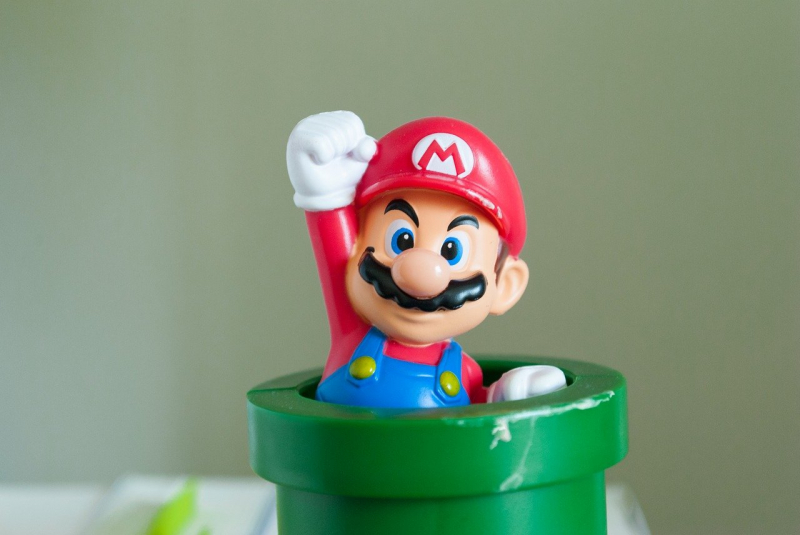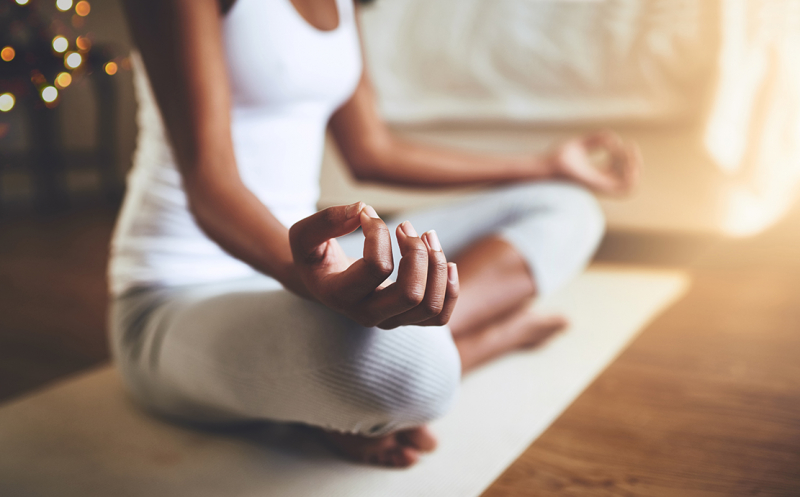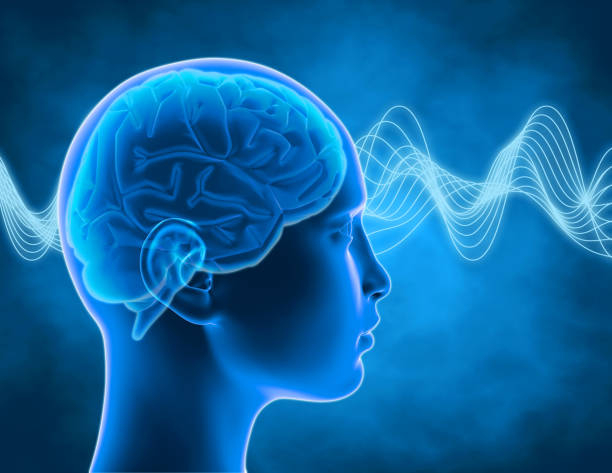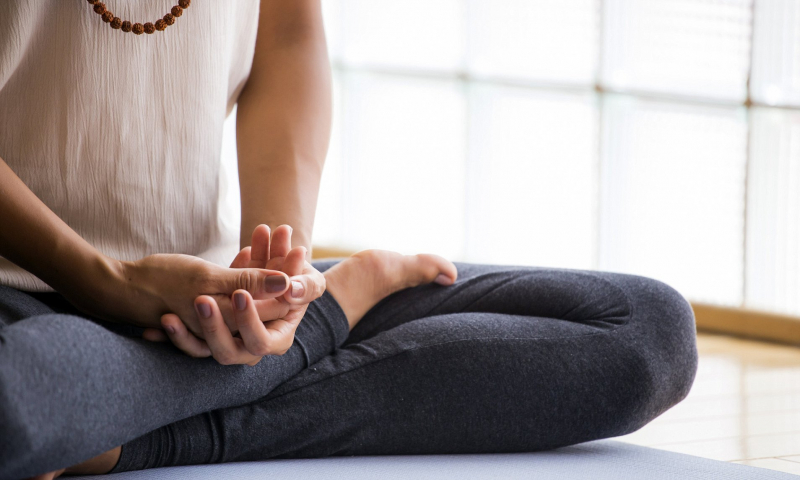Top 10 Things That Make You a Better Person in Just Minutes a Day
The self-help market in the US is worth more than $10 billion annually. People are spending a lot of money to hear from others about how to improve in some ... read more...way, which is staggering. If it were effective, you'd suppose that as individuals improved year after year until there was no longer any use for it. This, however, is not the case. The good news is that you can improve yourself physically and psychologically, and not only metaphorically, by following a few relatively easy actions that have been scientifically proven to work and scarcely cost any money or effort. Here are some of the top Things That Make You a Better Person in Just Minutes a Day .
-
When something goes wrong, people enjoy having a scapegoat. Rock 'n' roll was once the plague that afflicted young people. With heavy metal, that developed. Video games are another relatively recent development. Violence, poor academic performance, unemployment, sexual dysfunction, and a host of other issues are all attributed to video games.
However, it turns out that playing video games can enhance brain function and increase intelligence. Do you recall hearing that playing video games may lower your chances of Alzheimer's? The way it achieves it, though, can be advantageous to everyone, not just the vulnerable or aged. Video game playing has been demonstrated to enhance memory, planning, spatial orientation, and fine motor skills.
German adults were instructed to play Super Mario 64 for two months, every day for thirty minutes. They received MRIs after that. The amount of gray matter in their brains was noticeably higher than in the non-gaming control group. This might be seen in the cerebellum, right prefrontal cortex, and right hippocampal region.

toptenz.net 
gamesradar.com -
Meditation is one of the best Things That Make You a Better Person in Just Minutes a Day. The immune system of the body has been demonstrated to benefit from meditation. In other words, you can actually make yourself healthier by meditating, at least to a certain extent. This can have an impact on people who pray and have spiritual/religious experiences in addition to those who meditate in a more secular sense.
Brain scans of people engaged in prayer or meditation, from a neuroscience perspective, show greater activity in areas connected to concentration, which makes sense, but also lower function in the areas that give you a sense of self and orientation in the world. When people engage in prolonged prayer or meditation, it is said that they experience a sense of oneness with the cosmos. This feeling is shared by all people, regardless of their religious views. Blood tests performed on individuals who regularly practice meditation reveal enhanced expression of genes and telomeres linked to preventing disease or preserving health.

alleviant.com 
verywellmind.com -
Alzheimer's disease and other dementias have terrible effects on not just the patients but also on their relatives. The consequences, which are by no means pleasant, can take years to manifest. However, there is a little glimmer of optimism in the methods you've identified to lower the danger while you wait for new medicines or a cure. In particular, playing video games for 30 minutes a day may greatly lower your risk.
A game was played by study participants, who ranged in age from 60 to 80, for 30 minutes each day for four weeks. In contrast to Super Mario World, which is set in a 3D setting, one group played Angry Birds. The Super Mario World group exhibited better increases as well as improved memory, while both groups had increased cognition by the time the experiment was over. Although more research is clearly required, the advancements do support the notion that simple activities like regular gaming might be able to fend off diseases like Alzheimer's.

sciencetimes.com 
istockphoto.com -
Facebook has been the subject of nearly exclusively negative media coverage for the past few years, but the social media behemoth hasn't given many indications that it's on the decline. They still have close to 3 billion active users each month on the platform. But if all the negative things you've heard about Facebook and its rules haven't already convinced you to leave, think about how it might be to your advantage to do so.
According to research, you'll be doing yourself a favor if you stay off Facebook for even 20 minutes longer each day than usual. There is such a thing as Facebook addiction and general social media addiction. Many users are driven to frequently check for updates to see what other users are saying or if they have received any interaction. As a result, overall psychological health suffers noticeably. However, reducing your time by those 20 minutes can help.
Less Facebook use reduces melancholy and may even encourage you to work out more. That makes sense; instead of wasting 20 minutes on social media, just go for a stroll. In one study, 200 Facebook users who spent an hour every day on the site were tracked. While half were reduced to 20 minutes, the other half continued for an entire hour. After three months, those who reduced their intake said they felt better overall and less depressed.

toptenz.net 
economictimes.indiatimes.com -
Do you think meditation is a good idea? Is it a good way to relax and think about yourself? Or is it merely new-age nonsense? You might want to give it another look if the latter is the case. It appears that meditation has several practical advantages besides just a general sensation of peace. The "working memory" ability to keep knowledge active in one's mind is improved by practicing mindfulness meditation for ten minutes each day. The brain does this by becoming more effective, literally requiring less mental power to complete these activities.
Try meditation if you notice that you have trouble focusing and remembering things. Concentration can be increased with as little as 10 minutes per day of practice. The outcomes could be even more amazing if you practice even more frequently. One study found that students who meditated five times a day for eight weeks could move between states of awareness, according to brain scans. Memory has also been proven to be improved in other experiments.

dailymail.co.uk 
toptenz.net -
You don't need to rely on the internet anymore to be informed that exercise can improve your health. People ought to all be fully aware of that. But are you aware of the precise ways in which exercise might enhance your health? Beyond something like helping you lose weight? If it were just a numbers game, 10 minutes a day of exercise could stop 110,000 deaths annually. This is one of the best Things That Make You a Better Person in Just Minutes a Day.
Over 100,000 yearly deaths may be avoided, according to a study published in the Journal of the American Medical Association, if persons over 40 engaged in physical activity for 10 minutes each day. Over several years, the study included 5,000 participants, comparing adults under the age of 40 versus participants over the age of 40. From 2003 to 2006, data were used, and from 2007 to 2015, death rates were monitored. If that 10 minutes was increased to 20 or 30, the results suggested even more lives may be spared.

onlymyhealth.com 
abovems.com -
Now, some might object that using music to reduce stress and improve mood is a no-brainer and not a really interesting fact. However, there are increasingly stranger things you can do to better your life. Like how studies have proven that writing about your prior experience might help you heal your wounds more quickly.
You've probably all heard that talking about a distressing event might aid in emotional recovery. That is accurate and well-documented, too. The fact that the same technique can treat actual bodily injuries is less generally understood. In fact, cutting the healing period for physical wounds in half if you write about your feelings associated with a past experience.
Participants in a small study involving healthy people between the ages of 64 and 97 were instructed to keep a notebook for 20 minutes each day. One group wrote about the ordinary things they did every day. One wrote about some terrible personal experiences. On each member's arm, a small punch biopsy wound was produced, and the wound's healing was observed. After 11 days, more than 76% of individuals who participated in the expressive writing exercise had healed wounds compared to 42% of the other group.

independent.ie 
literacyworldwide.org -
Do you fret over your own mortality? If your plans to colonize another planet or create clones of yourself fail, you can still increase your chances of living a longer life by doing something very simple: reading books. According to research, reading just 30 minutes a day can add two years to your life compared to someone who doesn't read at all. Of course, if you performed this for 50 years, you would read for more than a year and gain just one year of actual productivity, but you would still be ahead of the game.
One thing to bear in mind is that it's especially book reading—not just any reading. According to the study, those who read books rather than magazines—over 3600 persons aged 50 or older—lived longer. More than 3.5 hours a week of reading lowers your risk of passing away by 23% compared to people who don't read. You have a 17% lower chance if it takes up to 3.5 hours. Why would reading make you live longer? It has been hypothesized that reading helps to engage the mind and enhance cognitive performance.

unsplash.com 
pearsonaccelerated.com -
You must schedule a time to occasionally put your devices away and just be in the real world in the age of video games and other digital distractions. Board games are a fantastic method to accomplish that. It's difficult to deny the pleasure you can have tearing into a round of Monopoly or Trivial Pursuit if you have the appropriate set of people. These games have been around forever. Additionally, if you introduce your children to board games, you're preparing them to be smarter than the typical bear.
The non-verbal IQ and cognitive speed of children who were instructed to play games for 60 minutes twice a week significantly improved. And even if you can't convince a child to unplug, there's still hope since some of the games that the children used to achieve these outcomes were electronic games. Additional research has revealed that children who play games like Chutes and Ladders exhibit enhanced math abilities. Even the so-called intelligence-boosting brain games actually help with working memory (but the promises of higher IQ are unfounded)
mirror.co.uk 
inc.com -
About 5% of persons suffer from the neurological syndrome known as musical anhedonia, which is defined by a simple dislike of music. Beyond that, it is generally accepted that almost everyone enjoys music of some form, which is a good thing. In fact, listening to your favorite music can help to reduce stress and despair. Additionally, it can enhance memory and cognitive function. There is even proof that it can help with speech disorders.
Listening to soothing music can encourage you to eat less if you're trying to get healthier. Additionally, it can make your sleep more restful. Or perhaps you have a music that motivates you whenever you have a crucial meeting or job interview. However, music has more good psychological effects than simply improving your outlook. It's a fantastic method to help your mental health as well. Following are four ways that music might improve your mental health. In essence, music may enhance many facets of your life. Most of the experiments simply asked participants to listen to music for 10 to 30 minutes while they carried out other duties, so it wasn't a significant time or effort commitment.
uchealth.org 
thebestbrainpossible.com































